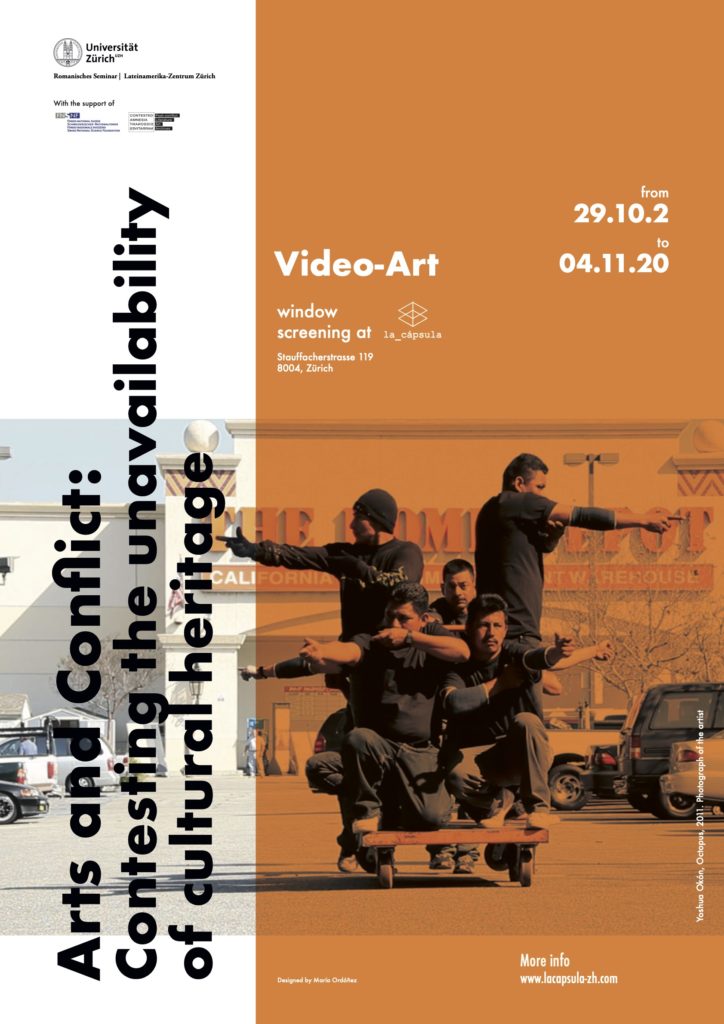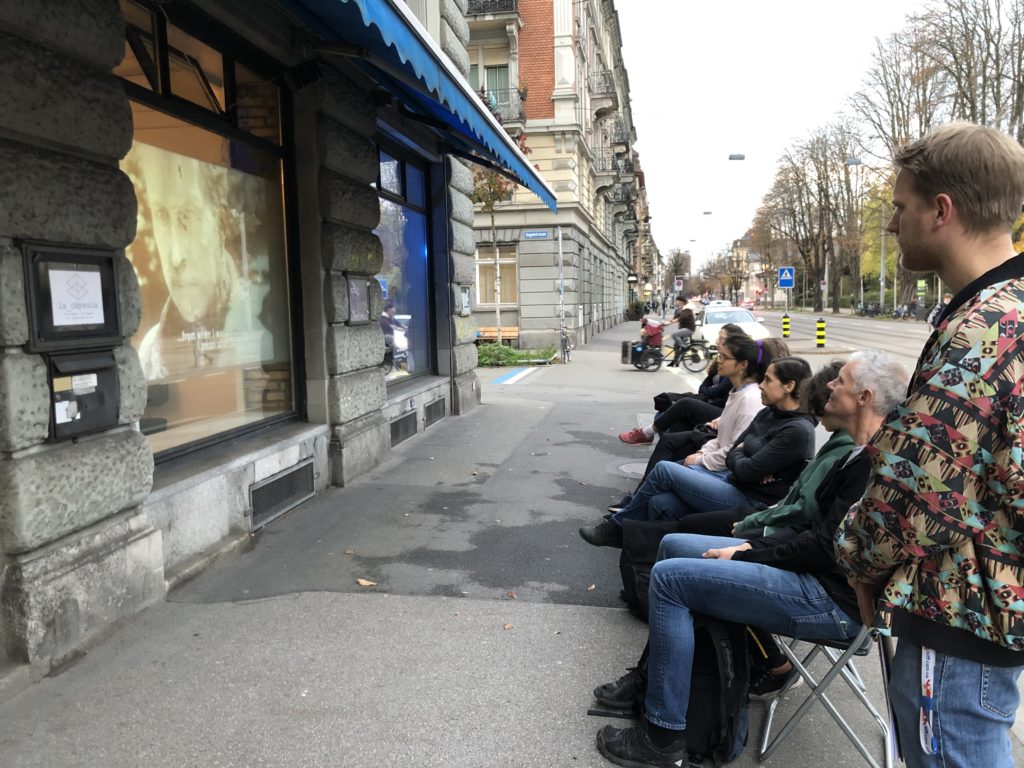Curated by Elena Rosauro & María Ordóñez
29.10. — 04.11.2020 at la_cápsula

The traditional relationship between art and memory has historically been linked to the practice of erecting monuments to conform specific narratives and meanings related to somehow conflicting or complex past events, such as battles and wars. The function of remembering was thus delegated in these monuments –usually vertical and figurative–, so that memory remained fixed, unchanged. By creating these public spaces for official memory, monuments propagated the illusion of a shared narrative, in which the historical accounts sanctioned by States were presented as naturally true. However, it has become evident that monuments –like any other cultural production– are contingent symbolic constructs deeply ingrained in the political, historical, and aesthetic realms. Therefore, especially since the end of the 20th century, monuments have more and more become sites where the confrontation of symbolic and cultural conflicts are unfolded. As it has repeatedly happened throughout history, images are nowadays again in the center of our current political, social and cultural disputes.
This video-art window screening program aims to display some of the ways how contemporary artists have worked around the topics of conflict, memory, and cultural or natural heritage, contesting the official narratives. The notion of counter-monument will guide us through their artistic strategies, for counter-monuments seek to deny the illusion of a permanent and immutable memory and a fixed and unchangeable history. These artworks operate as devices for activating multiple and diverse memories, by proposing entangled transversal links to the events recalled. They operate by bringing fragments to the fore, by acknowledging memories as situated, incomplete, and deeply subjective. Counter-monuments celebrate their change over time and geography, and seek to stimulate memory by explicitly pointing out its inevitable evolution throughout history. They aim to foster the visibilization of repressed histories. In this way, the past is constantly reformulated in the present, giving rise to different possibilities for memories in a continuous process of construction, in order to rethink the unresolved remains of the past. The artists presented in this program place history and its political conflicts –unresolved, only silenced– back in the center, bringing the past to the present in a sort of non-linear conception of time as open, multiple and, therefore, linked to the political. Arts have become critical sites for alternative social imaginations.
Elena Rosauro

With works by: Felipe Castelblanco, Carolina Caycedo, Coco Fusco and Guillermo Gómez-Peña, Adela Jušić, Yoshua Okón, María Ordóñez, Daniela Ortiz and Sarah Vanagt.